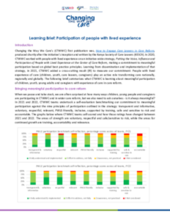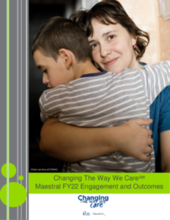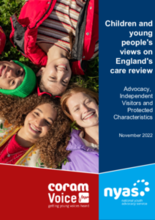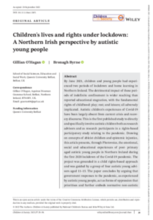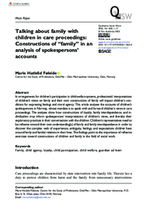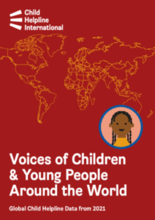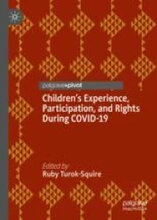Displaying 41 - 50 of 375
This learning brief was developed as part of the CTWWC 2022 annual report and shares learning from Kenya, Guatemala and Moldova. It is intended to help other practitioners understand how to bring meaningful participation of people with lived experience into care reform. By people with lived experience CTWWC considers children and youth, care leavers, parents and other care givers who are experiencing the care system in their context.
With a focus on 2022-23 themes of transition of care services, development of family-based alternative care, participation of people with lived experience and disability inclusion, this report details several of the significant outcomes and program activities achieved by the work of the CTWWC Maestral team over the last year.
This Family for Every Child podcast episode explores the context for children and young people with care experience in New Zealand.
In this U.S.-based study, over 200 pre-adolescent children recently placed into out-of-home care were asked about the difficulty and helpfulness of placement and how their lives might be different had they not been removed. The same participants were interviewed 10 years later.
This report produced by Coram Voice and the NYAS (National Youth Advocacy Service) captures the views of care-experienced children and young people in the UK on recommendations set out in the independent review of children’s social care in England.
This volume covers a broad spectrum of current research findings concerning the participation of young people in foster families and residential living groups in Australia, Canada, Germany, Ireland, Italy, Portugal, Norway, Sweden, and Switzerland as well as cross-nationals perspective on children and young people’s participation in foster and residential care placements in Great Britain and France.
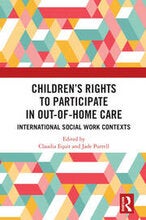
Autistic children's experiences of COVID-19 have been largely absent from current crisis and recovery discourse. This is the first published study to directly and specifically involve autistic children both as research advisors and as research participants in a rights-based participatory study relating to the pandemic.
This article analyses the accounts of children’s spokespersons in Norway, whose mandate is to speak with and forward children’s views in care proceedings. The analyses show how constructions of loyalty, family interdependence, and individualism may inform spokespersons’ interpretations of children’s views, and thereby their exploratory practices in their conversations with the children.
In order to understand the issues faced by the children and young people who get in touch with child helplines, Child Helpline International interviews members around the world every year to gather information about the contacts they receive. This report provides an overview of the information recieved for 2021.
This chapter examines practical insight from research conducted across the UK and elsewhere in Europe of the contexts that children were experiencing, the pre-existing causes of some of the challenges and examples of children providing evidence about their experiences and insights into how policy and services could better respond to the COVID-19 pandemic.

